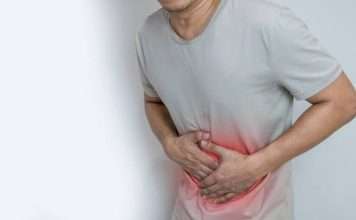Upper abdominal discomfort can stem from various origins, ranging in severity. That lingering ache or acute sensation beneath your ribs, situated in the upper abdominal area, can trigger concern, prompting questions about the underlying issue.
The upper portion of your stomach, also referred to as the upper abdomen, houses vital organs such as the stomach, esophagus (the conduit linking the mouth and stomach), liver, gallbladder, and pancreas. Irritation, inflammation, or obstruction within any of these organs can instigate upper stomach discomfort.
Below are some common causes of upper abdominal pain:
Dyspepsia, a general term encompassing post-meal unease. Factors like overindulgence, rapid ingestion, or consumption of spicy or fatty meals can contribute to indigestion. Symptoms like heartburn, bloating, and flatulence are often associated with indigestion.
Engaging in heavy lifting or intense physical activity can strain the muscles in the upper abdominal region, culminating in pain.This kind of pain typically presents as sharp and tends to lessen with rest and the use of pain medications.
It refers to the inflammation of the stomach lining, which can result from H. pylori bacterial infection, excessive intake of pain relievers, or heavy alcohol consumption. Gastritis may induce a persistent or burning sensation in the upper abdomen, particularly when the stomach is empty.
These are ulcerated lesions that form on the stomach lining or the initial segment of the small intestine. Factors like H. pylori infection or prolonged usage of nonsteroidal anti-inflammatory drugs (NSAIDs) like ibuprofen or aspirin can contribute to the development of peptic ulcers.
Peptic ulcers often manifest as a burning sensation in the upper abdomen, which may subside after eating or with the use of antacids.
These are solid, calcified formations that emerge within the gallbladder, a small organ situated near the liver. Gallstones may induce severe discomfort in the upper right abdominal area, especially following the consumption of fatty meals. The pain could be intermittent and may radiate.
The discomfort may occur in intervals and could extend to your back or the right shoulder blade.
This results from the regurgitation of stomach acid into the esophagus, leading to a burning sensation in the chest (known as heartburn) and pain in the upper abdomen. Foods high in spice or fat, caffeine, and alcohol can all serve as triggers for symptoms of gastroesophageal reflux disease (GERD).
Although less common, various factors can contribute to upper abdominal pain, including:
It signifies the inflammation of the appendix, a small pouch situated in the lower right abdomen. Appendicitis typically induces sharp pain in the lower right abdomen that might shift to the upper right abdomen as the inflammation progresses. Appendicitis necessitates prompt medical intervention.
The inflammation of the pancreas, a gland positioned behind the stomach, can prompt intense upper abdominal pain that extends to the back.
Kidney stones are solid deposits that develop in the kidneys. Although these formations typically lead to back pain, they can also cause discomfort in the upper abdomen.
In case you are suffering from upper stomach ache, consider the following suggestions for relief:
1. OTC medications: Utilize antacids to counteract stomach acid and reduce heartburn. Painkillers like ibuprofen or acetaminophen can alleviate muscle strain or inflammation-induced pain.
2. Dietary adjustments: Steer clear of trigger foods like spicy or oily dishes, caffeine, and alcohol. Opt for smaller, frequent meals and ensure thorough chewing.
3. Stress handling: High stress levels can exacerbate digestive problems. Practices such as breathing exercises and meditation can aid in stress management and potentially relieve upper abdominal pain.
While most instances of this type of pain resolve on their own with self-care, there are certain signs that necessitate prompt medical attention. These warnings include:
4. Intense pain: If your pain is severe and persistent, it’s crucial to seek medical help promptly.
5. Blood in vomit: This could indicate a critical condition and demands immediate medical intervention.
6. Bloody stools: Similarly, the presence of blood in stools may suggest a severe issue that requires a doctor’s assessment.
7. Unexplained weight loss: Accidental weight loss might signify an underlying health problem that needs attention.
8. Swallowing difficulties: This could signify issues with the esophagus and should be investigated by a medical professional.
Overall, while upper stomach pain can be worrying, it may not always indicate a severe problem. By recognizing common causes and employing home remedies, you can manage discomfort.
If you notice any of the concerning signs mentioned above, seek medical advice promptly.
